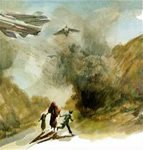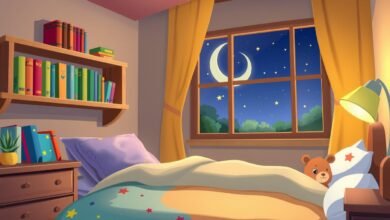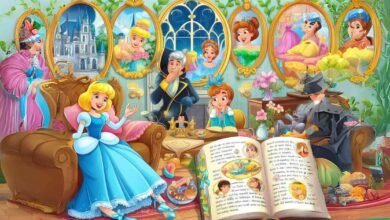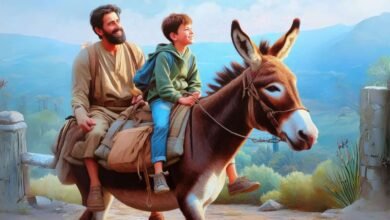The roses of my rugs

For a young refugee living with memories of loss and terror, time is measured in terms of the next bucket of water, the next loaf of bread, and the next call to prayer. Here, where everything – walls, floors, courtyard – is made of mud, a little boy’s heart can still yearn for freedom, independence and security. And here, where life is extremely fragile, it is necessity that creates the strength to resist. But the strength to dream comes from within.
It is always the same. The jets have seen me. I’m running too slow, because I have to pull for my mother and sister. The ground is treacherous, full of bomb craters, and my mother and sister keep me from moving forward. I was hit hard. When I’m about to die, or shortly after I die, I wake up.
Blessed darkness. It takes me a while to realize that I am in our mud house in the refugee camp. Safe. I hear the soft breathing of my mother and sister near me.
A rooster crows. It’s dawn. Perhaps it is better to get up and fetch water before a line forms at the well.
When I return with the heavy bucket, I see that my breath forms clouds. The plastic wing sticks into my palm and that makes me stop and rest several times.
When I get home, I wash my face. A useless habit, since here the walls are muddy, the floor muddy, even the courtyard muddy. It is impossible to keep clean.
I wake up my mother before going to pray at the mosque. When I return, breakfast is ready. Like my sister Maha is still sleeping, like my loaf of bread and I drink my quiet tea. Then I kiss him on the cheek and go to school.
When I return home for lunch, the cabin is already swept away. How slowly, cutting the bread into pieces to make it last longer. Maha swallows her portion and stares at mine.
“No,” my mother says sternly.
But when she turns her back, I give my sister a little. I will have to tighten my belt a little more.
The muezzin calls back to prayer. I go out into the narrow street, forgetting to be careful. A car flies past me and blows its horn.
In this place, people drive as if the demons were pursuing them, paying no attention to those who cross the road. I think about Maha. Good thing you’re safe at home.
After prayers comes my favorite part of the day. I will learn the art of weaving rugs. When I do, I can escape the jets, the nightmares, everything. As if, with my hands, I created a world that war cannot reach. A paradise like the one my father is in.
My father was a farmer, always at the mercy of time or someone who came to steal his land and crops. But I will have an art that no one can steal. As long as it is strong and valid, my family will never starve.
First, I have to practice. Someone far from here makes my training possible. I am a sponsored child. A foster child. They even took me a picture.
I will soon be a master craftsman and my godfather’s money will no longer be needed.
Each color I use has a special meaning.
The threads surrounding the frame into which all other threads are woven are white, like the shroud in which we wrapped my father’s body. Black is for the night that hides us from enemy eyes. Green is the color of life. Blue is to the sky, which will one day be free of jets.
Since everything in the field is a dirty brown, I never use brown on my carpets.
My favorite color is red. It is the color of roses. I never cultivated flowers. Every piece of land has to produce food. That’s why I make a lot of roses on my rugs.
I have intricate patterns of roses, all linked together. A beauty garden surrounded by a border, a wall. A wall around a little piece of paradise.
I am so focused on weaving that I do not hear the gasping breath of the boy who entered the room. It is the silence that awakens me. I look up and see everyone looking at me. Something terrible has happened.
– It’s your sister. It was hit by a truck.
I jump to my feet and scatter a thousand threads across the floor. A friend says he’ll catch them for me. I thank him with a nod and run out the door.
The boy tells me that Maha is at the clinic and that my mother is with her. They are operating it to try to save her legs.
When I get to the clinic, my mother is hysterical because she wants to go to her daughter. There are people who stop her and I hear screams. It’s my screams.
My mother turns her head and her look is almost inhuman. Like when my father died.
I have to be strong. I can not cry. Gently, I push her away a little, telling her that it might get in the way. My words have effect. She puts her head on my shoulder and I realize how much I grew up. It’s a weird time to notice things like this. I ask my mother to go home and pray for Maha’s safety. When there is news, I will give it to you.
Since I can’t keep quiet, I walk this way and that. Then I pray, remembering the advice I gave my mother. I pray for Maha and my mother. Then I pray for my godfather who pays for my sister’s operation and doesn’t even know it. I feel better after praying.
The doctor finally appears, with a tired look. The news is good: my sister will be fine. Her legs are broken, but she’ll be able to walk again. Not soon, but one day. A feeling of relief floods my face like welcome rain. I run home to tell my mother, who is crying with joy.
We ate bread and water. My mother cuts the bread into three pieces before she remembers that today we are only two. Give me Maha’s share and I’ll give you back half. We ate in silence. Every bit of bread runs through my throat and there is no water enough to help me swallow.
Exhausted, I lie on the straw mat I make of bed. Without Maha, the house is too quiet. I miss her so much and stay up for a long time.
At night, when I dream, I dream again with jets tearing the fabric of the sky.
But this time my mother and sister run with me and don’t stop me.
Because as we run, we find a space, the size of a carpet, where the bombs can’t reach us.
And within that space are roses. Rukhsana Khan The Roses in My Carpets Ontario, Fitzhenry & Whiteside, 2004 (Translation and Adaptation)



